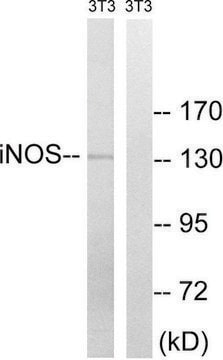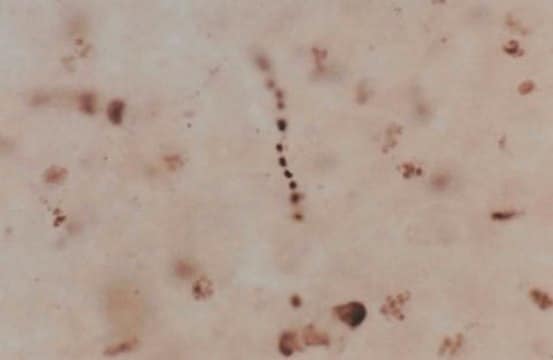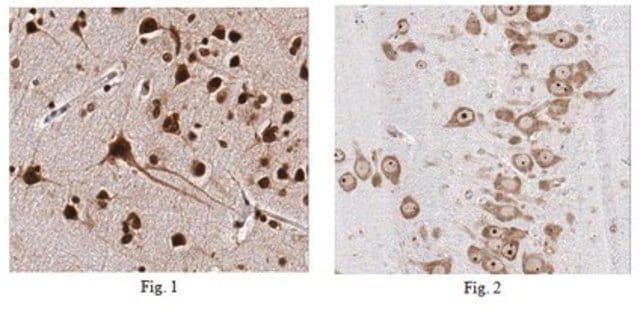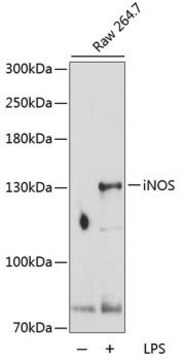ABN26
Anti-iNOS/NOS II Antibody, NT
from rabbit, purified by affinity chromatography
Synonym(s):
Nitric oxide synthase, inducible, Inducible NO synthase, Inducible NOS, iNOS, Macrophage NOS, MAC-NOS, NOS type II, Peptidyl-cysteine S-nitrosylase NOS2
About This Item
Recommended Products
biological source
rabbit
Quality Level
antibody form
affinity isolated antibody
antibody product type
primary antibodies
clone
polyclonal
purified by
affinity chromatography
species reactivity
mouse, human
packaging
antibody small pack of 25 μg
technique(s)
immunohistochemistry: suitable (paraffin)
immunoprecipitation (IP): suitable
western blot: suitable
NCBI accession no.
UniProt accession no.
shipped in
ambient
storage temp.
2-8°C
target post-translational modification
unmodified
Gene Information
mouse ... Nos2(18126)
General description
Specificity
Immunogen
Application
Immunoprecipitation Analysis: 10 µg of this antibody immunoprecipitated iNOS/NOSII from IFNgamma/LPS treated RAW264.7 cell lysate.
Neuroscience
Oxidative Stress
Quality
Western Blot Analysis: 0.5 µg/mL of this antibody detected iNOS/NOS II on 10 µg of IFNgamma/LPS untreated and treated RAW264.7 cell lysates.
Target description
Linkage
Physical form
Storage and Stability
Analysis Note
IFNgamma/LPS untreated and treated RAW264.7 cell lysates
Other Notes
Disclaimer
Not finding the right product?
Try our Product Selector Tool.
recommended
Certificates of Analysis (COA)
Search for Certificates of Analysis (COA) by entering the products Lot/Batch Number. Lot and Batch Numbers can be found on a product’s label following the words ‘Lot’ or ‘Batch’.
Already Own This Product?
Find documentation for the products that you have recently purchased in the Document Library.
Our team of scientists has experience in all areas of research including Life Science, Material Science, Chemical Synthesis, Chromatography, Analytical and many others.
Contact Technical Service








